I am trying to define a variable from an external library in C++, Visual Studio 2010. It only works when I put it outside of the main function.
This code crashes:
#include "StdAfx.h"
#include <ogdf\basic\Graph.h>
#include <ogdf\basic\graph_generators.h>
int main()
{
ogdf::Graph g;
ogdf::randomSimpleGraph(g, 10, 20);
return 0;
}
It gives me an unhandheld exception: Access violation. However, if it is outside main function, it works without any problem:
#include "StdAfx.h"
#include <ogdf\basic\Graph.h>
#include <ogdf\basic\graph_generators.h>
ogdf::Graph g;
int main()
{
ogdf::randomSimpleGraph(g, 10, 20);
return 0;
}
Do you have any how do I fix that? I assume, that it is caused by some kind of linking problem.
EDIT: It looks like the problem is not the initialization of the variable. It throws an exception, when the application exits.
int main()
{
ogdf::Graph g; // No problem
ogdf::randomSimpleGraph(g, 10, 20); // No problem
int i; // No problem
std::cin>>i; // No problem
return 0; // Throws an exception after read i;
}
Call stack: 
The output is: First-chance exception at 0x0126788f in graphs.exe: 0xC0000005: Access violation writing location 0x00000000.
Unhandled exception at 0x0126788f in graphs.exe: 0xC0000005: Access violation writing location 0x00000000.